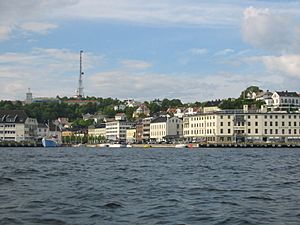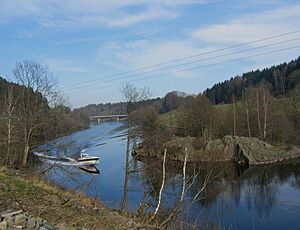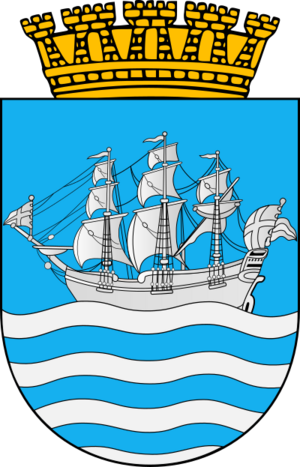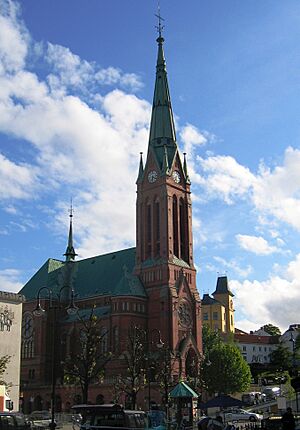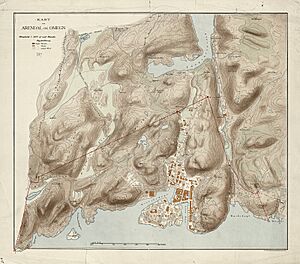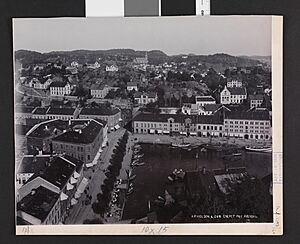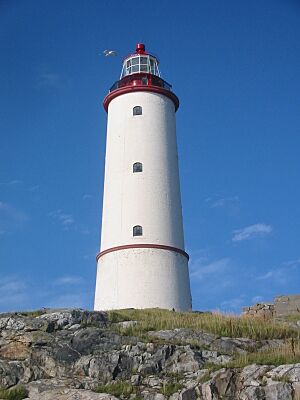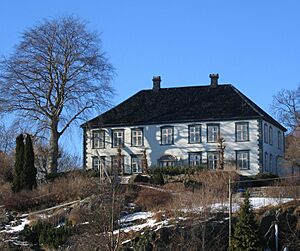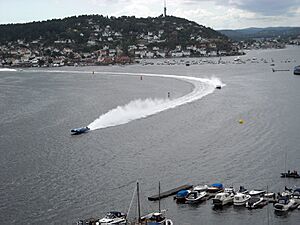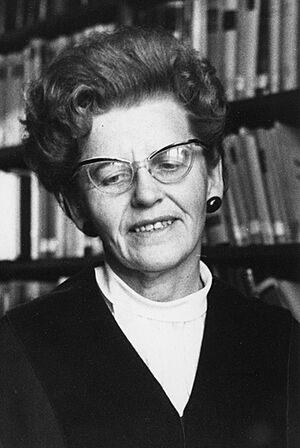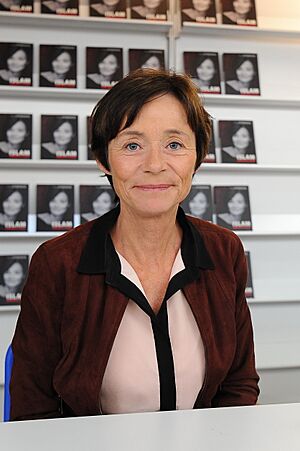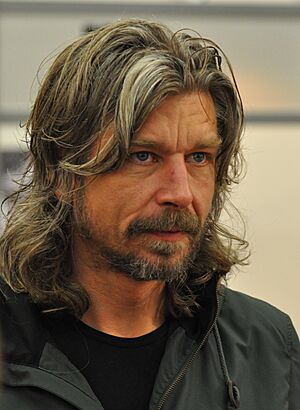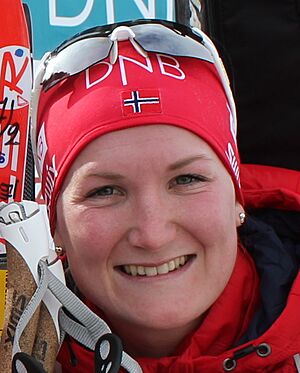Arendal facts for kids
Quick facts for kids
Arendal kommune
|
|||
|---|---|---|---|
|
Municipality
|
|||
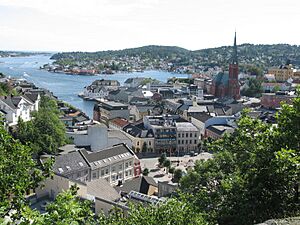
View of Arendal's city centre in August 2006
|
|||
|
|||
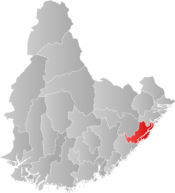
Arendal within Agder
|
|||
| Country | Norway | ||
| County | Agder | ||
| District | Sørlandet | ||
| Established | 1 Jan 1838 | ||
| Administrative centre | Arendal | ||
| Area | |||
| • Total | 270.19 km2 (104.32 sq mi) | ||
| • Land | 255.14 km2 (98.51 sq mi) | ||
| • Water | 15.05 km2 (5.81 sq mi) 5.6% | ||
| Area rank | #273 in Norway | ||
| Population
(2023)
|
|||
| • Total | 45,891 | ||
| • Rank | #24 in Norway | ||
| • Density | 179.9/km2 (466/sq mi) | ||
| • Change (10 years) | 5.9% | ||
| Demonym(s) | Arendalitt | ||
| Time zone | UTC+01:00 (CET) | ||
| • Summer (DST) | UTC+02:00 (CEST) | ||
| ISO 3166 code | NO-4203 | ||
| Official language form | Bokmål | ||
| Created as | Formannskapsdistrikt in 1838 | ||
|
|
|||
Arendal is a cool municipality (a type of local government area) in southeastern Norway. It's part of Agder county and the Sørlandet region. The main town, also called Arendal, is the center of the municipality and the capital of Agder county.
Arendal is home to many interesting villages like Rykene, Eydehavn, Færvik, and Kolbjørnsvik. The offices of UNEP/GRID-Arendal, an environmental information center, are also in Arendal.
This municipality covers about 270 square kilometers. That makes it the 273rd largest out of 356 municipalities in Norway. With a population of 45,891 people, Arendal is the 24th most populated municipality in the country. Its population has grown by about 6% in the last ten years.
Contents
Arendal's History and Growth
How Arendal Became a Municipality
The town of Arendal officially became a municipality on January 1, 1838. Over the years, Arendal grew by combining with nearby areas. For example, in 1902, the rural area of Barbu joined Arendal.
A big change happened on January 1, 1992. Several neighboring municipalities like Hisøy, Moland, Tromøy, and Øyestad all merged with Arendal. This made the new municipality much larger, with a total population of over 38,000 people.
What Does the Name Arendal Mean?
The name "Arendal" comes from an old Norse word, probably "Arnardalr." The first part, "Arnar," means "eagle." The second part, "dalr," means "valley" or "dale." So, Arendal likely means "the valley of the eagle."
Arendal's Coat of Arms
Arendal's coat of arms was approved in 1924, based on an older design. It shows a blue background with a three-masted sailing ship above seven wavy blue and white lines. The ship is usually shown in white or silver.
This design was chosen to show how important fishing and sailing were to the town's economy. A ship has been on Arendal's town seal since the 1600s! The municipal flag looks just like the coat of arms.
Churches in Arendal
The Church of Norway has several parishes, or local church areas, within Arendal municipality. Here are some of the churches:
| Parish | Church name | Location | Year built |
|---|---|---|---|
| Barbu | Barbu Church | Barbu | 1880 |
| Hisøy | Hisøy Church | His | 1849 |
| Moland | Austre Moland Church | Brekka | 1673 |
| Flosta Church | Flostaøya | 1632 | |
| Stokken Church | Saltrød | 1878 | |
| Trefoldighet | Trinity Church | Arendal | 1888 |
| Tromøy | Færvik Church | Færvik | 1884 |
| Tromøy Church | Brekka | c. 1150 | |
| Øyestad | Bjorbekk Church | Bjorbekk | 1884 |
| Engene Church | Nedenes | 1849 | |
| Øyestad Church | Rykene | c. 1200 |
A Look Back at Arendal's Past
Arendal started as a small village in the mid-1500s. It was first known as Arendall. For a long time, it didn't have official town status.
In 1641, King Christian IV gave the city of Christianssand a special right to control all trade in the area. This made it hard for Arendal. But in 1622, Arendal got permission to keep trading timber.
Arendal finally received full market town rights in 1723. However, local farmers often smuggled their goods to other countries. This continued until 1735, when Arendal was granted a full town charter.
This charter, along with new rules on grain imports, caused problems for farmers. This led to some famous rebellions. In 1786, a farmer named Christian Jensen Lofthuus led a protest. This led to some trade rules being changed, but Lofthus died in prison.
For centuries, shipping, shipbuilding, timber trade, mining, and ironworks were very important in the Arendal region. People from Arendal had many contacts with other countries, which shaped their local culture. By 1880, Arendal was Norway's biggest port by the amount of goods handled.
In the late 1800s, Arendal was a major shipping center with many rich shipowners. However, the town faced economic difficulties around 1886. This led to many businesses failing and high unemployment. In the mid-1700s, Arendal was also one of Norway's biggest mining towns, mainly producing iron ore.
Around the 1900s, many Norwegians moved to the United States for better opportunities. Many people from Arendal settled in places like Brooklyn and Staten Island in New York City. They also moved to industrial areas in New Jersey. In 1939, Arendal had the fourth largest fleet of tanker ships in Norway.
During World War II, Arendal was captured by a German torpedo boat on April 9, 1940.
Today, Arendal has industries like small boat manufacturing, electronics, and one of the world's largest silicon carbide refining plants.
Arendal's Location and Nature
Arendal is located next to the Skaggerak sea. It shares borders with Grimstad to the southwest, Froland to the northwest, and Tvedestrand to the northeast. The lake Rore and the river Nidelva are also found here.
Arendal is famous among geologists for the mineral Babingtonite. This mineral was first found and described here in 1824.
The municipality has several islands where people live, such as Hisøya, Tromøya, Merdø, Flostaøya, and Tverrdalsøya. There are also many smaller, less populated islands. Merdø island was a big trading port in the 1600s and 1700s. Today, it has a museum, a small shop, and beaches. You can take a boat from Arendal to Merdø every day in the summer.
Economy and Jobs in Arendal
In 2018, most jobs in Arendal (82%) were in the service sector. This means jobs like retail, tourism, and other services.
As of 2020, a large area called Eyde Energipark is being developed. This is an industrial park where a new battery factory is planned. This factory will make batteries for cars and ships and is expected to open around 2023.
Fun Things to See and Do in Arendal
Exploring Arendal Town
In the center of Arendal, you can find an area called Tyholmen. It has beautiful wooden houses that are hundreds of years old, some from the 1600s! This is what's left of the old town before the 1800s.
Arendal's inner harbor is called "Pollen." Here, you'll find a fish market, pubs, and restaurants. The impressive Trinity Church stands tall and can be seen from many parts of the town.
Arendal used to be a quiet summer town, but now it's lively all year round. New buildings like the library and the combined city hall/concert house have made cultural life much better.
Lighthouses to Visit
- The Store Torungen Lighthouse is on the island of Store Torungen near Arendal. It was built in 1844 and became electric in 1914. It's 34.3 meters (about 112 feet) tall. You can reach it by a 55-minute boat trip from the town center. It's still working today!
- The Lille Torungen Lighthouse is on the smaller island of Lille Torungen. This lighthouse is 28.9 meters (about 95 feet) tall. Both Lille Torungen and Store Torungen were built as "twin" lighthouses to guide ships into Arendal's shipping lane.
- The Sandvigodden Lighthouse is also located in Arendal.
Strømsbo Gård Manor House
Strømsbo gård is a beautiful manor house on an old farm west of Arendal's center. The manor dates back to the 1760s. From 1804, it was owned by the Herlofson family. Peter Herlofson gave the building its current look. Later, Axel Herlofsen built a sawmill nearby. Nicolai Benjamin Herlofson, who was once the mayor of Arendal, grew up here.
Music Festivals in Arendal
- Canal Street is Arendal's yearly jazz and blues festival. It happens every summer and has been running since 1996. It started as the Arendal Jazz and Blues Festival and has become very popular.
- From 2007 to 2014, the Hove Festival took place on Tromøy island, just outside Arendal. It was one of Norway's biggest music festivals, with space for up to 25,000 people!
Getting Around Arendal
The European route E18 highway is a main road through Arendal. It connects to Oslo in the northeast and Kristiansand to the southwest. Other important roads include Norwegian County Road 407, Norwegian County Road 408, and Norwegian County Road 410.
The local train line, Arendalsbanen, goes to Nelaug. There, you can connect to the main Sørlandsbanen railway line, which runs between Oslo and Stavanger.
Buses, run by Setesdal Bilruter (for AKT), offer connections throughout Arendal and to nearby towns like Grimstad, Lillesand, and Kristiansand. Other bus companies also offer longer trips to places like Risør, Tvedestrand, Oslo, and Stavanger. There's also a bus service to Kristiansand Airport.
Ferries travel between the city center and the islands of Hisøya and Tromøya. Arendal also has an airport, Arendal Airport, Gullknapp, but it doesn't have regular commercial flights.
Arendal's Climate
The climate along Norway's southern coast, where Arendal is located, is mild. Arendal gets a good amount of rain throughout the year, even in its driest month. The climate is known as temperate oceanic.
The average date for the last frost in spring is April 11, and the first frost in autumn is November 17. This means Arendal usually has about 219 frost-free days each year. While heavy snowfall can happen in winter, especially with winds from the southeast, the snow usually doesn't stay long near the coast.
International Connections
Arendal has special "sister city" agreements with several places around the world. These connections help promote friendship and understanding between different cultures.
Sister Cities of Arendal
Arendal has sister city agreements with these places:
| City | Region | Country |
|---|---|---|
| Árborg | ||
| Mwanza | ||
Arendal in Movies and Books
The area around Arendal was used for the 1997 TV series "Min drømmeserie" from Lille Lørdag.
You might know Arendal from the 2013 Disney movie Frozen! The fictional kingdom of Arendelle in the movie is named after and loosely based on the city of Arendal.
Famous People from Arendal
Many notable people have come from Arendal, including:
Public Service and Thinkers
- Jens Munk (1579–1628), a Dano-Norwegian explorer.
- Sam Eyde (1866–1940), an engineer and industrialist who started Norsk Hydro.
- Lilly Bølviken (1914–2011), the first woman to be a Norwegian Supreme Court Justice.
- Svenn Stray (1922–2012), who served twice as Foreign Minister of Norway.
- Grete Faremo (born 1955), a politician and business leader.
- Hege Storhaug (born 1962), a human rights activist and author.
Artists and Performers
- Louis Moe (1857–1945), a painter, illustrator, and writer.
- Karl Ove Knausgård (born 1968), a famous writer who grew up on Tromøya in Arendal.
- Øyvind Sauvik (born 1976), a hip hop musician.
Sports Stars
- Monica Knudsen (born 1975), a former footballer who won a gold medal at the 2000 Summer Olympics.
- Øystein Grødum (born 1977), a speedskater who competed in the 2006 Winter Olympics.
- Håvard Vad Petersson (born 1984), a curler who won a silver medal at the 2010 Winter Olympics.
- Marte Olsbu Røiseland (born 1990), a biathlete and silver medallist at the 2018 Winter Olympics.
|
See also
 In Spanish: Arendal para niños
In Spanish: Arendal para niños




